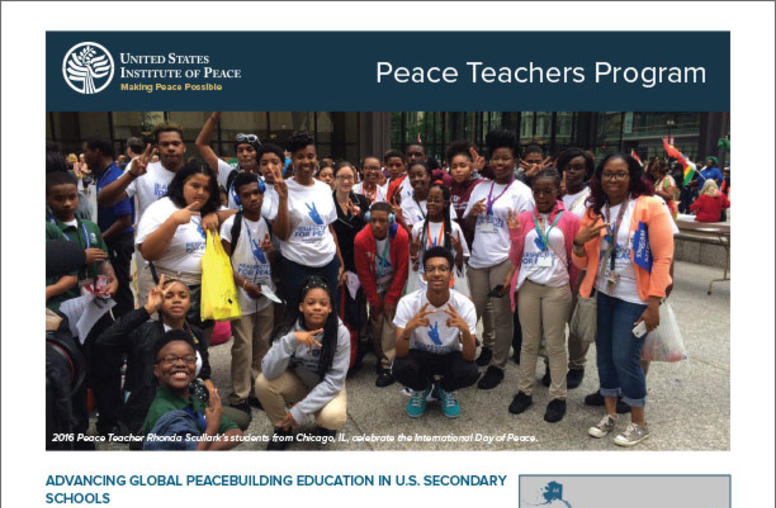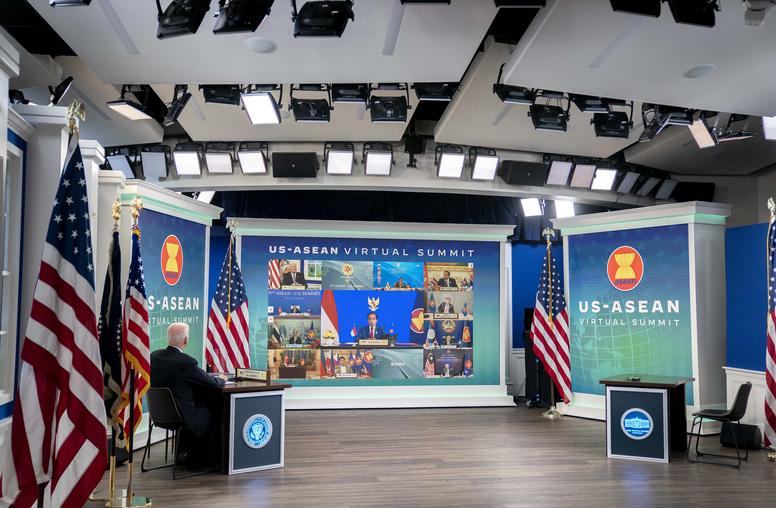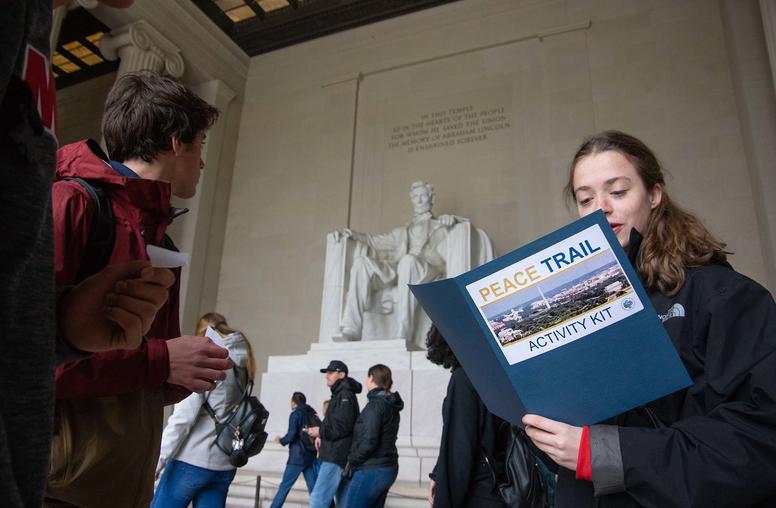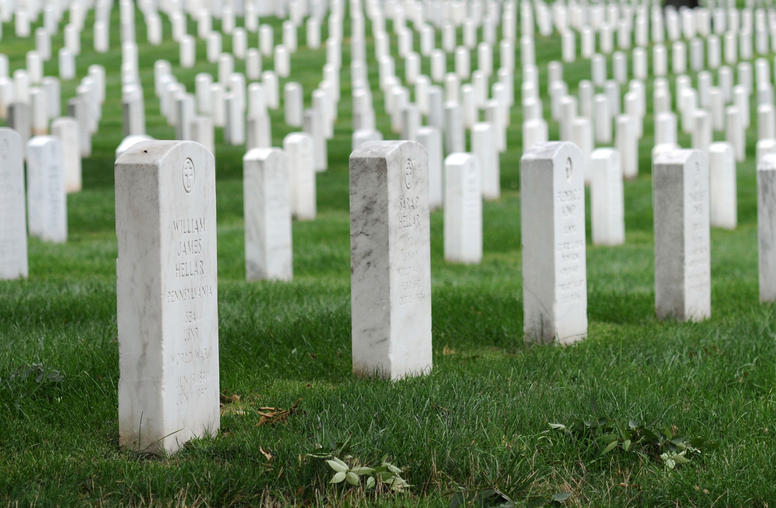A Discussion with Rose Gottemoeller
USIP held an informative discussion with Rose Gottemoeller, assistant secretary of state for verification, compliance, and implementation, on the verification provisions of the New START agreement. Her remarks were followed by an expert panel discussion on the implications of verification for the START ratification process and a lively Q & A session with the audience.
Event Summary
By Liz Harper
As the Senate considers whether to ratify the New Strategic Arms Reduction Treaty (START), the U.S. Institute of Peace held an informative discussion on July 26, 2010 with Rose Gottemoeller, assistant secretary of State for Verification, Compliance and Implementation, on the verification provisions and other aspects of the New START. Following an introduction by USIP Executive Vice President Tara Sonenshine, USIP’s Paul Hughes moderated the discussion with the assistant secretary and with the expert panel following her remarks.
In her remarks, Gottemoeller described the New START treaty as “a continuation of the international arms control and nonproliferation framework that the United States has worked hard to foster and strengthen for the last 50 years.”
The New START treaty between Russia and the U.S. – signed by President Dmitry Medvedev and President Barack Obama on April 8, 2010 – is intended as a successor to the first arms reduction treaty. The 1991 START I treaty expired in December 2009. (Learn more about USIP’s work on nonproliferation and on Russia and the U.S.)
“Its comprehensive verification regime will provide predictability, but it recognizes that we are no longer in a Cold War relationship,” she said.
“It allows each party to determine for itself the composition and structure of its strategic offensive arms and how reductions will be made,” she added.
The New START sets an upper limit of 1,550 deployed warheads for both Russia and the U.S., and no more than 700 deployed intercontinental ballistic missiles (ICBMs), deployed submarine-launched ballistic missiles (SLBMs) and deployed heavy bombers. This marks a reduction of up to 650 strategic warheads.
“The obligations and prohibitions of the New START treaty are different from those in START, reflecting both the improved U.S.-Russia relationship and lessons learned from 15 years of implementing the START treaty,” said Gottemoeller, who was involved in the recent negotiations with the Russians.
Gottemoeller said verification of the provisions was essential to reach the goal of arms reduction between the U.S. and Russia, which together possess 90 percent of the world’s nuclear weapons. The verification regime is central to debate on whether the Senate should ratify this treaty.
“The verification regime is based on an extensive set of data exchanges and timely notifications regarding all strategic offensive arms and facilities covered by the treaty, two types of on-site inspections, exhibitions, restrictions on where specified items may be located, and additional transparency measures,” she noted.
She also discussed innovations from the now expired START I treaty, such as the ability to confirm that the actual number of warheads emplaced on a designated missile matches the declared figure at the pre-inspection briefing.
Bruce MacDonald, senior director of USIP’s Nonproliferation and Arms Control Project, noted that "this is not just useful for New START verification, but it is a key breakthrough and major precedent in addressing the important issues of verifying numbers of tactical nuclear weapons and nondeployed warheads in any follow-on nuclear arms treaty. Russia has in the past been quite resistant to such verification, and it would be unfortunate not to lock in this improved mode of inspection."
Following her presentation, Gottemoeller fielded questions from the audience.
Afterwards, an expert panel spoke further about the verification provisions and implications of the debate underway in Congress.
Amy Woolf of the Congressional Research Service addressed the comparisons between START I and the New START, saying the differences were not necessarily “good or bad,” but just different. “Times have changed,” she told the packed house. In this context, she underscored, it wasn’t worthwhile to compare the two treaties – but rather we needed to decide whether it’s in our best national security interests.
Since the 1991 treaty expired, no arrangement exists between Russia and the U.S. to verify how many and what kinds of nuclear weapons each country possesses.
Woolf also dismissed concerns that the U.S. gave the Russians extra concessions during negotiations as an enticement to sign the treaty. Instead, she said, “in some cases, the provisions favor the U.S.”
Greg Thielmann from the Arms Control Association stressed that any “delay to ratification is bad for our national security interests.”
Since “START I is history now,” Thielmann said, “delay is dangerous. Right now, we don’t have inspections, and we are in jeopardy of losing our international credibility” if we back away from our pledge to reduce arsenals and follow through on the commitments we made.
Speaker:
- Rose Gottemoeller
Assistant Secretary of State for Verification, Compliance, and Implementation
Panelists:
- Amy F. Woolf
Congressional Research Service - Greg Thielmann
Arms Control Association - Paul D. Hughes, Moderator
U.S. Institute of Peace



